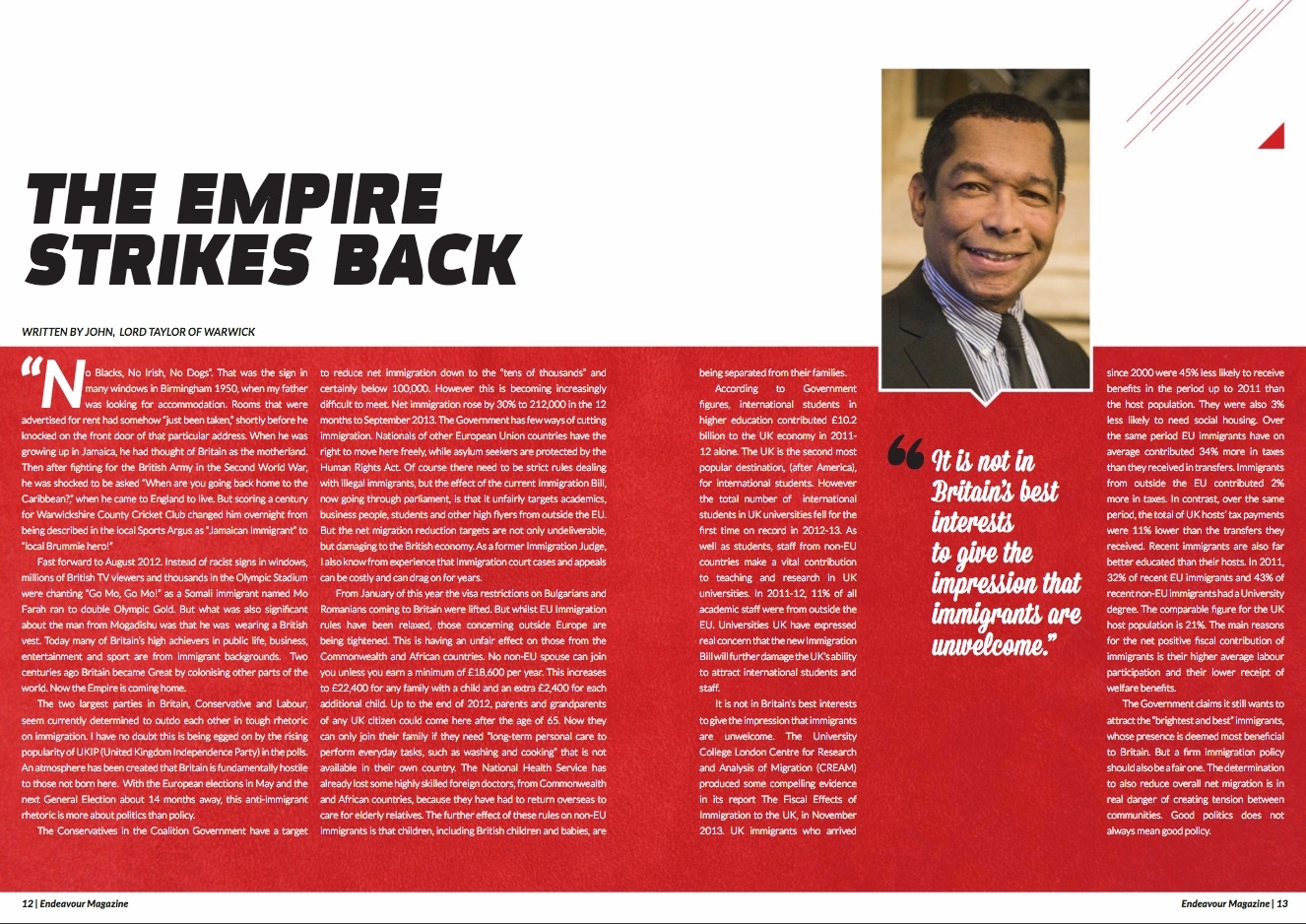
The Empire Strikes Back, written by Lord John Taylor of Warwick
“No Blacks, No Irish, No Dogs”. That was the sign in many windows in Birmingham 1950, when my father was looking for accommodation. Rooms that were advertised for rent had somehow “just been taken, ” shortly before he knocked on the front door of that particular address. When he was growing up in Jamaica, he had thought of Britain as the motherland. Then after fighting for the British Army in the Second World War, he was shocked to be asked “When are you going back home to the Caribbean?,” when he came to England to live. But scoring a century for Warwickshire County Cricket Club changed him overnight from being described in the local Sports Argus as “ Jamaican Immigrant” to “local Brummie hero!”
